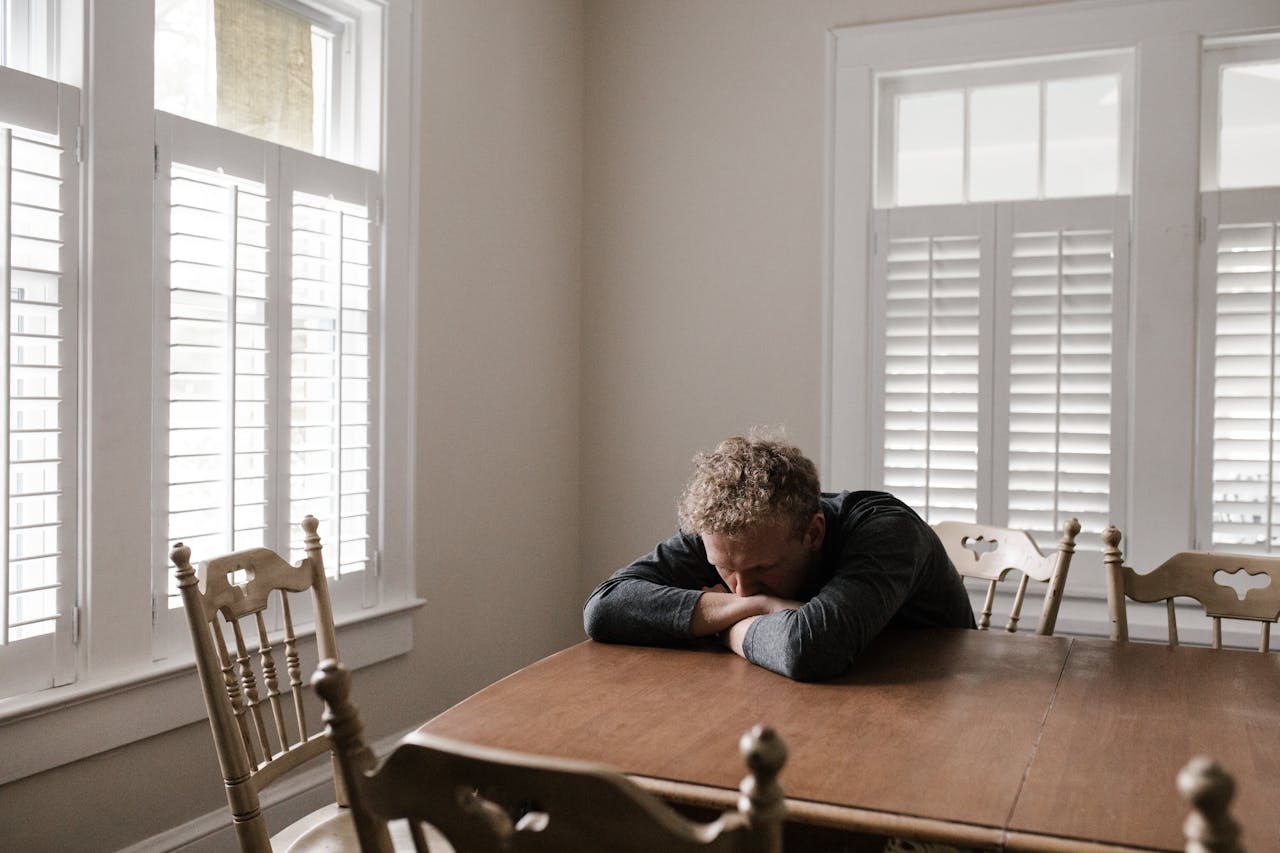8 Clear Signs You Desperately Need a Mental Health Day—Why You Should Not Wait

In our fast-paced world, it’s all too easy to push ourselves beyond our limits, treating rest and recovery as luxuries rather than necessities. We prioritize work deadlines, family obligations, and countless daily tasks, often ignoring the fact that our mental health is suffering. But just as our bodies need rest from physical exhaustion, our minds also need time to recharge. Mental health days are not indulgences—they’re essential for keeping ourselves balanced, productive, and emotionally resilient. So how do you know when it’s time to hit pause? If you’ve been pushing through stress, anxiety, or emotional exhaustion, here are eight clear signs that you desperately need a mental health day.
1. You’re Constantly Feeling Overwhelmed

Do you feel like you’re barely keeping your head above water? When every task, no matter how small, starts to feel insurmountable, it’s a clear sign that you’re overwhelmed. Maybe your inbox is overflowing, your to-do list is endless, or you’re juggling personal and professional obligations. Whatever the reason, when stress becomes constant, it can leave you feeling like you’re in a never-ending race. This feeling of overwhelm isn’t just a minor inconvenience—it’s a signal that your mental and emotional resources are being depleted. Taking a mental health day gives you the chance to step away from the chaos, clear your mind, and regain your sense of control. With a day of rest, you’ll return to your tasks with a fresh perspective and the energy to tackle them more effectively.
2. You’re Irritated by the Smallest Things

Do you find yourself snapping at loved ones or getting disproportionately upset over trivial things? Maybe a slow driver on your commute enrages you, or a spilled cup of coffee sends you into a spiral of frustration. This level of irritability often indicates that you’re emotionally drained. When stress is high, your patience runs thin, and it becomes harder to manage your emotions. Little irritations, which you’d normally brush off, start to feel like major disruptions. If you’re constantly on edge, it’s a sign that your mental health needs attention. A mental health day allows you to reset, release the built-up tension, and regain emotional control, so you’re better equipped to handle life’s minor annoyances with grace.
3. Your Sleep Schedule Is Completely Off

Have you been struggling to fall asleep or waking up multiple times throughout the night? On the flip side, maybe you’re sleeping too much and still feeling exhausted. When your mental health is suffering, one of the first signs is often disrupted sleep. Chronic stress and anxiety can wreak havoc on your sleep patterns, creating a vicious cycle that’s hard to break. Sleep issues can lead to heightened stress, irritability, and even more mental fatigue. Taking a mental health day can give you the opportunity to reset your sleep routine. By dedicating time to rest and relaxation, you’re likely to see improvements in both the quality and quantity of your sleep, helping you feel more refreshed and mentally clear.
4. You’ve Lost Interest in Things You Used to Love

If activities you once enjoyed now feel like a burden or you can’t muster up excitement for hobbies that used to bring you joy, it’s a sign that your mental health may be suffering. Stress and burnout have a way of dulling our enthusiasm for life, making even our favorite pastimes feel pointless or exhausting. This emotional numbness is a clear indication that you need to step back and recharge. Taking a mental health day allows you to reconnect with activities that spark joy or simply spend time resting without any pressure. Whether it’s indulging in a hobby, going for a walk, or binge-watching your favorite show, a day off can reignite your sense of enjoyment and remind you of what makes you happy.
5. You’re Struggling to Stay Focused

Have you noticed that it’s becoming harder to concentrate on tasks that usually come naturally to you? Whether it’s zoning out in the middle of meetings, forgetting important details, or struggling to complete simple tasks, lack of focus is a common symptom of mental fatigue. When your mind is overloaded with stress, it’s difficult to stay present and productive. This lack of concentration can be frustrating, and it often leads to even more stress as tasks pile up. If your mind feels scattered, it’s a signal that you need to hit pause. A mental health day can help clear away the mental fog, giving you the chance to return to work or your daily routine with improved focus and sharper problem-solving skills.
6. You’re Dealing with Physical Symptoms of Stress

Mental health issues don’t just impact your emotions—they can take a serious toll on your physical well-being. If you’re experiencing frequent headaches, digestive issues, muscle tension, or even chest pain, stress could be the underlying cause. These physical symptoms are your body’s way of telling you that it’s overwhelmed. Ignoring them won’t make them go away—in fact, they’re likely to worsen if left unaddressed. A mental health day gives you the opportunity to focus on self-care, whether that’s through relaxation techniques, a warm bath, or some light exercise to release tension. Taking time to care for both your mind and body can alleviate these stress-induced symptoms and help prevent long-term health issues.
7. You Feel Completely Emotionally Drained

When was the last time you felt truly excited about something, or emotionally engaged with the world around you? If you’re feeling numb, disconnected, or emotionally exhausted, you’ve likely been running on empty for far too long. Emotional exhaustion makes it difficult to connect with others, find joy in your relationships, or even care about things that matter to you. It’s not just a bad day—it’s a sign that your emotional reserves are depleted. A mental health day can help restore your emotional energy by giving you the space to process your feelings, reflect on what’s weighing you down, and reconnect with yourself. With this emotional reset, you’ll be able to return to your routine with a renewed sense of purpose and connection.
8. You’re Avoiding Social Interactions

Are you withdrawing from social interactions and avoiding friends, family, or colleagues? If you’re isolating yourself, it may be because you’re too emotionally drained to engage with others. While some alone time can be beneficial, avoiding social contact for extended periods can lead to feelings of loneliness and even deepen your stress or anxiety. If socializing feels like too much effort, it’s a sign that you need a mental break. A mental health day allows you to recharge in solitude or, if you feel up to it, connect with supportive loved ones in a low-pressure setting. By taking the time to rest and recharge, you’ll be more capable of engaging with others in a positive and fulfilling way.
Final Thoughts

Recognizing these signs early is crucial for maintaining your overall well-being. Just as you would take a sick day when your body isn’t functioning at its best, your mind deserves the same level of care and attention. When you’re feeling overwhelmed, irritable, or emotionally drained, it’s time to take a mental health day before burnout sets in. A day off can work wonders for your mental clarity, emotional balance, and physical health, allowing you to return to your daily responsibilities feeling refreshed and ready to tackle whatever comes your way. So, the next time you notice these signs creeping in, don’t wait—prioritize your mental health and take the break you deserve.
By being proactive about your mental health, you’re not only taking care of your mind but also ensuring that you can continue to show up as your best self in all areas of your life. A mental health day isn’t just a break from work—it’s an investment in your long-term happiness and well-being. Listen to the signs, and give yourself the care you need.
Leave a Reply